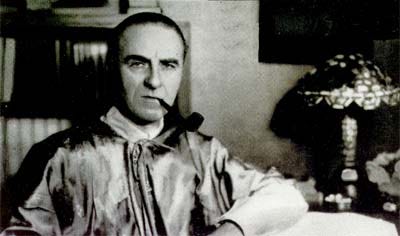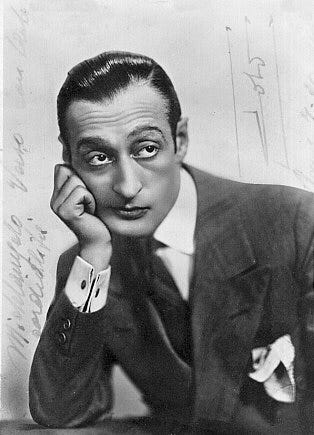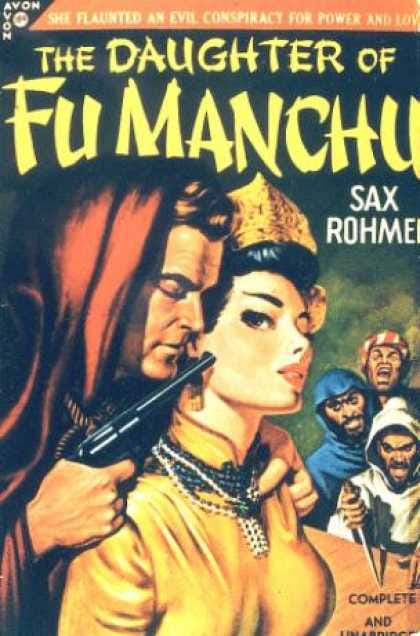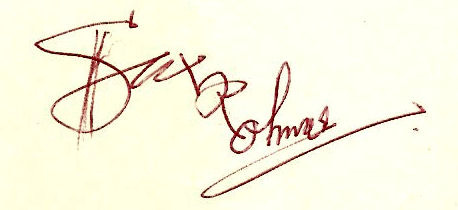My father’s favorite author was Sax Rohmer. I’m not sure if it was literature he picked up as a teenager or an adult. But I was practically raised in a household with his Fu Manchu series in every room in our house. Mostly mass market paperbacks that had stained yellow paper, that looks like if one touched it, the paper would crumble into dust. It has been noted that Rohmer was part of the qabbalistic Hermetic Order of the Golden Dawn and had ties with the Rosicrucians. It was a mixture of being a ‘pulp’ writer and being attached to secret societies that made him such an appealing figure to my family.
Before Rohmer became a “weird” novelist, he was a comedy sketch writer for the English Music Hall. One of the people he met and worked with was the great Italian artist Totò, but eventually, the language barrier was too much of a strain for them. Even though they could only communicate through various slapstick skills, both artists became more obsessed with language, which in fact, Totò became known as a great poet. After leaving the music hall, Rohmer became devoted to the Hermetic Order and wrote novels and short stories for Peterson’s Weekly. His first published book was “Little Tich” “ a biography of a well-known music hall performer. Around this time, he invented his masterpiece Fu Manchu.
The character was drawn from the Orient and, of course, was part of the “Yellow Peril” fear that was hitting Western countries at the turn of the century. Fu Manchu is a master criminal who specializes in poison and the drug trade and white slavery fund most, if not all, his criminal organization. There were ten full-length Fu Manchu novels, where detective Denis Nayland Smith hunts him down, but by the last paragraph, or the last page, Fu Manchu always escapes from Smith’s clutches.
The escape artist Harry Houdini was a fan of the Fu Manchu series and became a friend of Rohmer. Their relationship was such an odd one, concerning Houdini’s desire to debunk mystical ties to the practice of stage magic. He was obsessed with the thought that a magician is an artist or at the very least a craftsman who works magic as a skill, not someone who gains ‘magic powers. ' Rohmer, on the other hand, believed in the mystic powers and was a traveler in the world of secret societies and practices. He eventually spent time in the Orient, learning secrets that were unknown in the West at that time. He was also an expert on the practices of Opium, and it has been rumored that he was the first one to turn Jean Cocteau onto that drug, that eventually he became addicted to it - up to the time he was filming “Beauty and The Beast.”
Rohmer passed away in 1959 from an outbreak of influenza - “Asian Flu. ”






